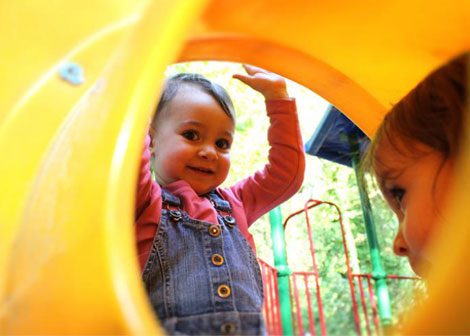As parents we can sometimes fall into the trap of assuming that life for a school age child is carefree and easy. As they don’t have the stress of going to work, paying bills, cooking, cleaning and parenting like we do, it can be difficult to understand that life for a child in primary school can be complex and challenging.
Children’s brains are developing at a rapid pace. However, they are still learning how to manage their feelings and behaviours, and have to do this in a range of different environments.
Your child’s day to day stresses
Each day your child is managing the day-to-day stress of home life (siblings, chores and homework) at the same time as dealing with the emotional minefield of the school yard, fitting in with friends, dealing with conflict, coping with peer pressure, and adjusting to classroom rules and expectations.
Learning how to cope with all of this whilst staying on top of schoolwork and meeting homework deadlines can be utterly exhausting. We often find that children during this time can be moody, argumentative, snappy, emotional and just plain difficult. It’s a time where we might experience tears, tantrums, eye rolls, talking back, boundary pushing and rebellion.
Supporting your child
As challenging as these behaviours can be, there is a lot you can do.
- Provide boundaries, limits and predictability.
- Set rules and expectations as well as consequences for when these aren’t met – and be consistent.
- Role model calm and appropriate responses to stressful situations.
- Talk about feelings and emotions – the good, the bad and the ugly.
- Get active! Team sports, individual sports, a run at the park or jumping on the trampoline, encourage whatever you can do to get the blood pumping!
- Slow things down – while it’s important that children get enough exercise and stimulation, it is equally as important to allow time for your child to ‘just be’
- Make sure your child is getting enough sleep.
- Talk with your child. Ask questions. Listen. You don’t have to fix their problems, sometimes just listening is enough.
- Foster your child’s self-esteem. Encourage them, catch them doing the right thing, and tell them you love them as much as you can.
By being a consistent, reliable, caring and understanding support for your child you can help them to feel a sense of safety and security during the school years. They will learn that they can come to you for advice when they need it.
By doing this in the early years of school, you are paving the way for open communication, managing emotions and boundary setting, which is so important as your child enters the pre-teen and teen stages!
Want to know more?
The Raising Children Network – Understanding school-age behaviour
Kids Matter – Thinking about transition to school





